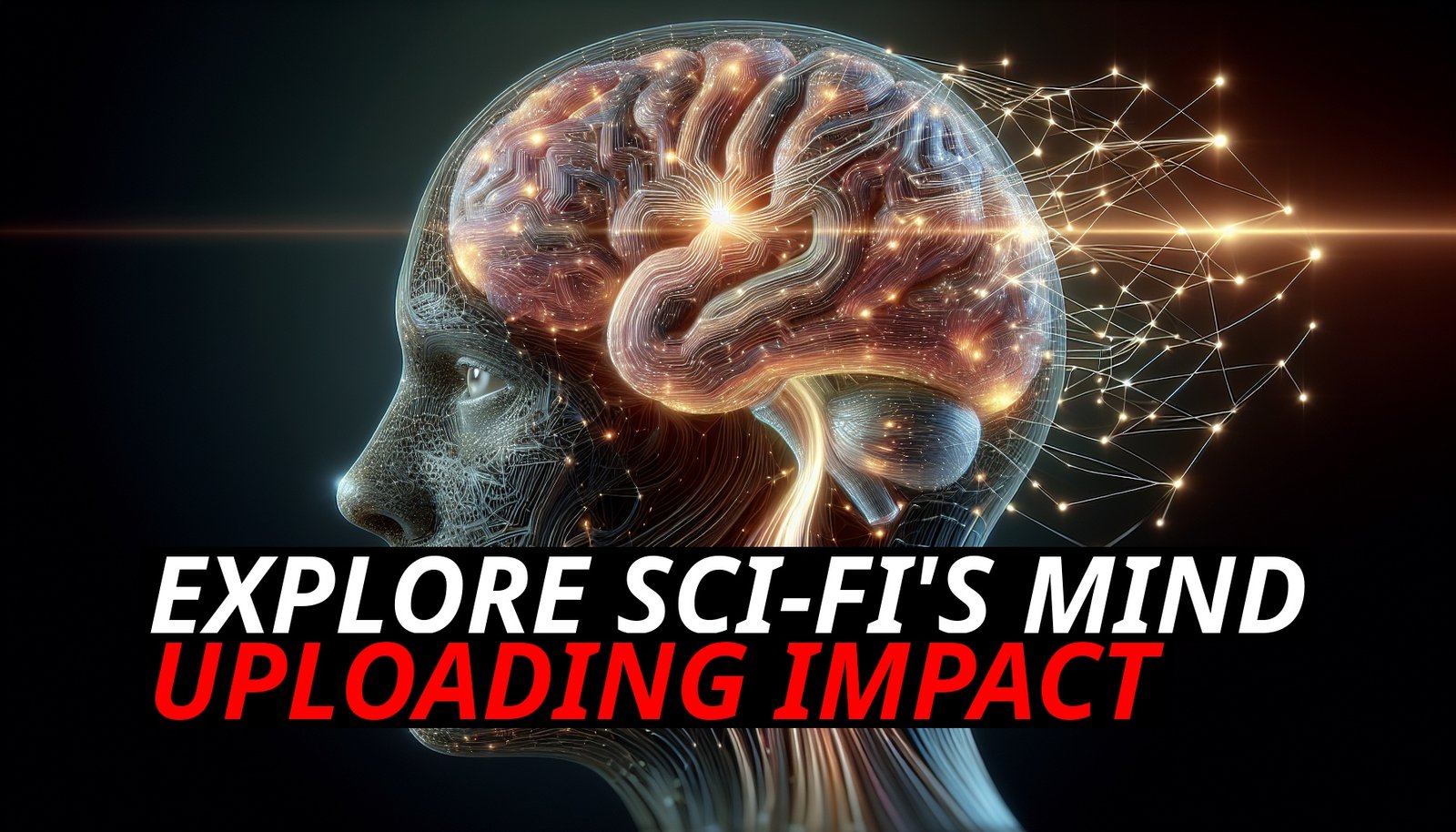Imagine waking up in a world where everything you know is a lie—a digital simulation designed to keep your mind trapped while your body serves as a mere power source. This is the chilling premise of The Matrix, a film that has become a cultural touchstone for our fears and fascinations with digital existence. But The Matrix is just one of many works of science fiction that have shaped how we think about mind uploading, digital consciousness, and the future of human identity. How do these stories influence our perceptions of this futuristic concept, and what do they reveal about our hopes and fears for a digital future?
The Matrix: A Dystopian Vision Of Digital Reality
Released in 1999, The Matrix introduced audiences to a dystopian world where humanity unknowingly lives in a simulated reality, their minds plugged into a digital construct while their bodies are harvested for energy by intelligent machines. The film’s depiction of a digital world indistinguishable from reality has left a lasting impact on how we think about the possibilities and dangers of mind uploading.
For many, The Matrix embodies the ultimate fear of losing control over one’s reality. The idea that our consciousness could be manipulated, trapped, or even erased by a powerful digital system raises deep concerns about the potential risks of mind uploading. Could we one day find ourselves in a digital world so convincing that we can no longer tell what’s real? And if so, who controls that reality?
The film also taps into existential questions about identity and free will. If our minds can be uploaded or altered at will, what does that mean for our sense of self? The Matrix suggests a nightmarish scenario where technology becomes a tool of oppression rather than liberation—a cautionary tale that continues to influence public perceptions of digital existence.
Black Mirror: Exploring The Dark Side Of Digital Consciousness
Black Mirror, the critically acclaimed anthology series, has become synonymous with exploring the dark and unsettling aspects of technology’s impact on society. Several episodes delve into the concept of mind uploading, each presenting a unique, often dystopian take on the idea.
In the episode “San Junipero,” Black Mirror presents a more optimistic view of mind uploading, where individuals can live in a digital afterlife, free from the constraints of their physical bodies. This vision of digital immortality offers comfort and escape, but it also raises ethical questions about the nature of existence and the consequences of living forever in a simulated world. While the episode is more hopeful than others, it still prompts viewers to consider the potential downsides of an eternal digital life, such as the loss of the natural cycle of life and death.
On the other hand, episodes like “White Christmas” and “Black Museum” present far more sinister scenarios. In these stories, digital consciousness is used for punishment, control, and exploitation, reflecting deep-seated fears about how such technologies could be abused. The show’s exploration of digital consciousness often highlights the potential for dehumanization, where individuals become trapped in endless loops of suffering or reduced to mere data points, stripped of their humanity.
Black Mirror challenges viewers to think critically about the ethics of mind uploading and the potential consequences of creating digital copies of ourselves. It suggests that while the technology could offer incredible possibilities, it also holds the potential for profound moral and societal challenges.
Star Trek And Transcendence: Optimism Vs. Caution
While The Matrix and Black Mirror often highlight the dangers of digital existence, other works of science fiction offer a more optimistic perspective. The Star Trek franchise, for example, has explored mind uploading and digital consciousness in various episodes, often presenting it as a pathway to greater understanding and evolution.
In Star Trek: The Next Generation, the character Data—a highly advanced android—represents the potential for digital beings to possess not only intelligence but also humanity. The show often grapples with questions of identity, consciousness, and the rights of artificial beings, ultimately suggesting that digital consciousness can coexist with human values and ethics.
Similarly, the film Transcendence explores the idea of mind uploading as a means to achieve greater knowledge and power. While the film raises concerns about the loss of humanity in the pursuit of digital immortality, it also presents the concept as a potential next step in human evolution, where technology and consciousness merge to create something entirely new.
These more optimistic portrayals of mind uploading offer a counterbalance to the darker visions presented in The Matrix and Black Mirror. They encourage us to imagine a future where digital consciousness could enhance our lives rather than threaten our humanity.
The Influence Of Science Fiction On Public Perception
Science fiction has a powerful impact on how we perceive the possibilities and risks of emerging technologies. Stories like The Matrix and Black Mirror don’t just entertain us; they shape our fears, hopes, and ethical considerations about the future of mind uploading.
By presenting vivid, often extreme scenarios, science fiction allows us to explore the potential consequences of mind uploading before the technology becomes a reality. It forces us to confront difficult questions: What are the risks of losing control over our digital selves? How might digital consciousness be exploited? Can we trust technology to preserve our humanity, or will it ultimately lead to our downfall?
At the same time, science fiction also inspires us to think creatively about the future. The optimistic visions presented in Star Trek and Transcendence remind us that technology can be a force for good, pushing the boundaries of what it means to be human and expanding our understanding of consciousness.
Conclusion: Navigating The Future Of Digital Existence
As mind uploading and digital consciousness move closer to reality, the influence of science fiction on our perceptions of these technologies will only grow. Whether we view mind uploading as a pathway to immortality or a dystopian trap depends in large part on the stories we tell ourselves.
By engaging with the ideas presented in science fiction, we can better prepare for the ethical, social, and existential challenges that lie ahead. The narratives we embrace will shape how we approach the development and implementation of mind uploading technologies—whether with caution, optimism, or a healthy dose of both.
Ultimately, the future of digital existence is a story that has yet to be written. As we continue to explore the possibilities, it’s up to us to decide how that story will unfold, drawing on the lessons and warnings provided by the rich tradition of science fiction that has brought us beyond the matrix and into the realm of the possible.













